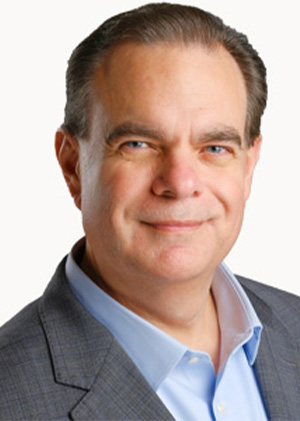Digital Debut
Meet the Board
Get to know your officers through these short interviews
INTERVIEWED BY SAHELY MUKERJI | AUGUST 12, 2025
 |
|
|
Alfonso del Granado, CASC
|
|
We are running a series of Q&As with ASCA’s Board of Directors to help our members get to know them better. Meet Alfonso del Granado, CASC.
Q: How did you get into the ASC space?
Alfonso del Granado (ADG): I was a department head at a Chicago hospital and leading one of its outpatient programs when a family member took ill and I couldn’t continue to work 90 hours a week. What attracts so many staff to ASCs is exactly what I needed to be able to take care of my family and continue to provide for them—and 15 years on I’ve never regretted my decision.
Quick Facts
Personal:
Age: 56
Place of birth: Chicago, Illinois
Residence: Houston, Texas
Family: Spouse, Natalya; and 4-year-old son, Ricky
Education: Bachelor of Science in Healthcare Management, American Intercontinental University; Master of Business Administration with concentration in healthcare, American Intercontinental University
Career highlights: Producing award-winning surgical videos while working as a practice administrator in Chicago; later, helping turn around a nearly-defunct hospital department to the second-highest revenue producer; getting back-to-back-to-back zero-finding accreditation surveys my first year in compliance; turning around an under-performing surgery center to lead in financial performance and employee and patient satisfaction as my first ASC administrator job; being listed among Becker’s “ASC Administrators to Know” seven times; achieving multiple Center of Excellence designations as well as “America’s Best Ambulatory Surgery Center” recognition from Newsweek/Statista; and serving as a mentor, education committee chair and board member at ASCA. And now in Houston, I can’t wait to see how I can serve my new team!
First job: Setting up IBM’s first generation of electronic billing software at a doctor’s office and condensing a 2,000-page system manual into a 20-page user manual. I had to learn everything about medical practice operations to shortcut complicated processes and turn them into simple checklists.
One-word description of self: Relentless
Go-to motto or phrase: It’s not that bad.
Your “superpower”: I have an overnight “reset button” where I forget negative things and start fresh every day. I used to call it short-term memory loss but I realized I always remembered positive things and never negativity. So, now I liken it more to a well that can run low by the end of a challenging day but somehow always fills back up again overnight. This “superpower” helps me continue to support the people I work with, who might be facing a difficult time, without burning out myself.
One thing most people at work do not know about you: I used to speed-talk at near-record speeds; as a teen I could clearly recite Hamlet’s entire “To be or not to be” soliloquy in 33 seconds, just 3 seconds shy of the world record at the time.
Q: What are your aspirations for ASCA?
ADG: I truly believe that ASCA can help to educate the public, professionals and policymakers about the critical role that ASCs play in the healthcare continuum. I have yet to meet anyone who, after they are given even just some basic information, does not see that this can be the best environment for appropriately selected patients to receive high-quality, safe, convenient and cost-effective care.
Q: Who was a great mentor for you?
ADG: My mentor in ASC management was Ali Nili, who has been the chief operating officer at Oak Brook Medical Management for the better part of three decades. I’d had to leave Weiss Hospital to care for an ailing family member, and he started me in a compliance position where I had flexible time and the chance to learn about every department, before eventually entering the administrator role at one of its ASCs. I deeply appreciate how much time he spent showing me the ropes and generously sharing his extensive knowledge and experience. I would not be here today without him.
Q: What are you most proud of in your ASC work?
ADG: Professionally, I can’t take credit for the numerous awards and achievements that were earned by the teams I led, but personally, I have been most proud of finding ways to bridge communication gaps among leaders, staff and surgeons in ways that helped to heal fractured or contentious relationships. It’s rarely easy and sometimes can feel impossible, but politeness, patience and persistence almost always pay off.
Q: If you could change one thing about the ASC community, what would it be?
ADG: I would like leaders at all ASCs, whether single- or multispecialty, independent or aligned, to come together under ASCA’s umbrella so that we can present a united front to ensure that a fair and accurate picture of our industry is widely disseminated and understood.
Q: What excites you most about the future of ASCs?
ADG: Three things excite me about the future of ASCs more than anything else: first, technology gets better, smaller and less expensive, so every year we find we’re able to perform procedures of ever-increasing complexity; second, data becomes more standardized and widely disseminated, so we’re able to draw on each others’ experiences to learn what works and what to avoid, helping to drive patient safety and operational efficiency; and third, hospitals and health systems are increasingly seeing the value of entering into partnerships with ASCs and physicians in ways that help to round out their networks, increasing productivity and satisfaction at the same time.
Q: What legacy do you hope to leave in the ASC space?
ADG: I don’t aspire to much—the main legacy I hope to leave behind is through mentorships and programs like ASCA’s ASC Administrator Development Program, helping the next generation of leaders by sharing our experiences and helping them find their own way through our increasingly challenging healthcare landscape.